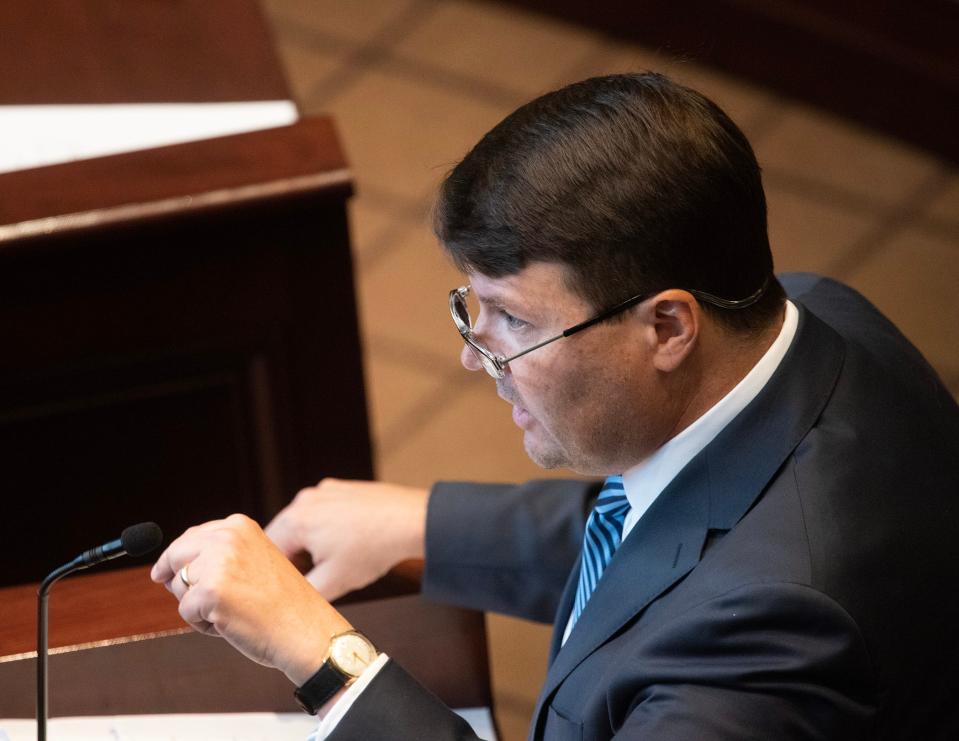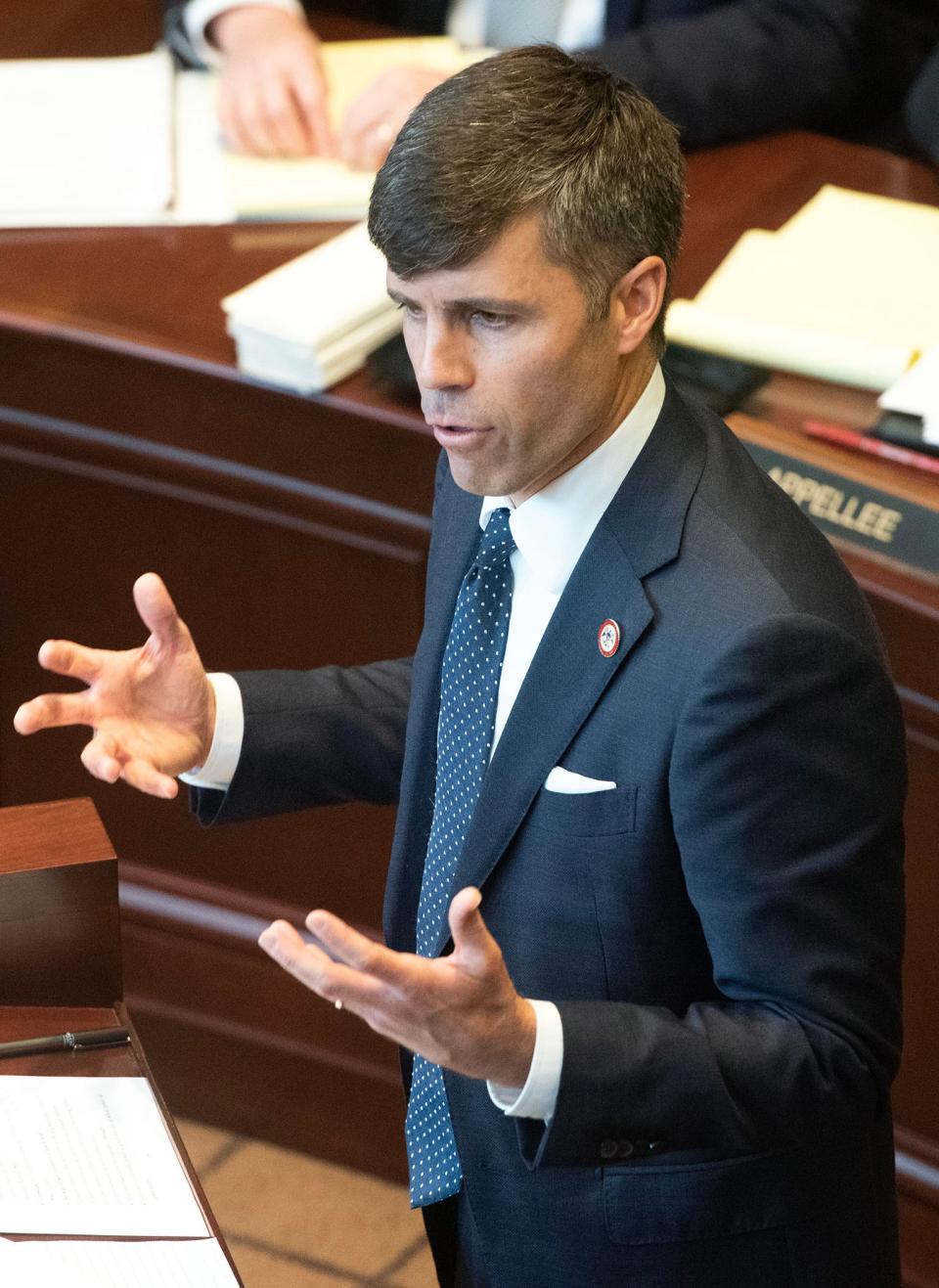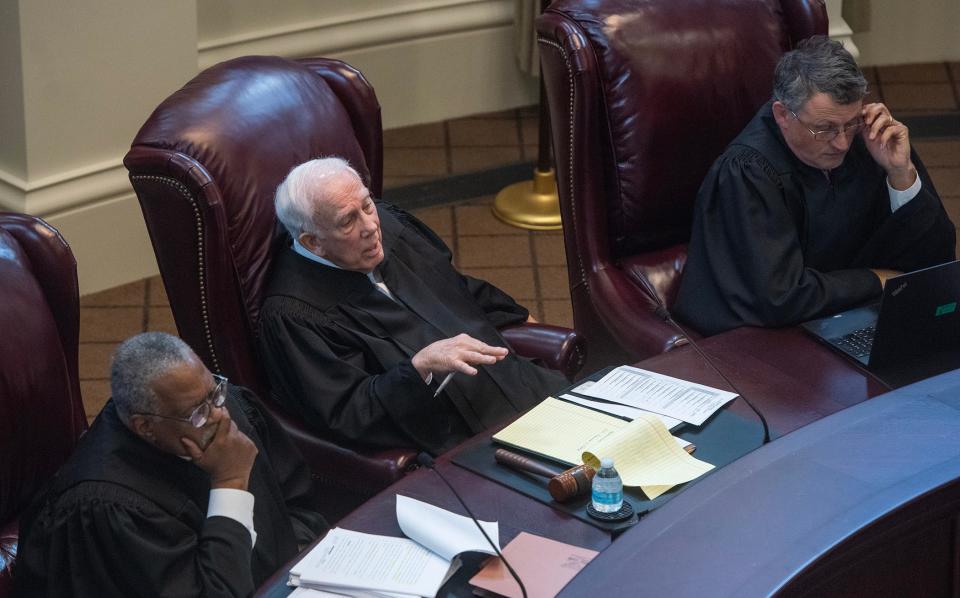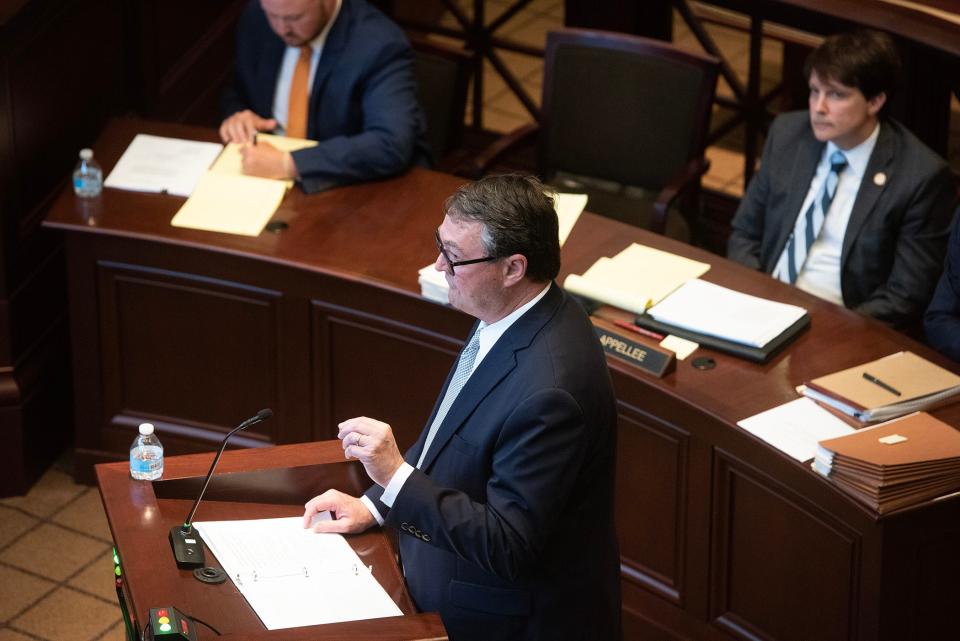Lawyers, judges spar on controversial HB 1020 during Mississippi Supreme Court hearing
Eight justices of the Mississippi Supreme Court will now decide the fate of House Bill 1020, after hearing arguments Thursday on whether its provisions on unelected judges are constitutional.
The typically nine-member body is short its top judge after Chief Justice Michael Randolph recused himself from the case earlier this week. Randolph wrote that remaining on a case that once listed him as its chief defendant "risks prolonging the ‘circus'" and distracting from the ultimate decision.
Justice James Kitchens presided over oral arguments Thursday, which saw attorneys representing three Hinds County residents make the case that the controversial bill violates the state constitution, which states that Circuit Court judges "shall be elected." Under HB 1020, Randolph would appoint four judges to temporary positions within the Hinds County Circuit Court and one permanent judge to a new court that would service the Capitol Complex Improvement District.
"The Mississippi Constitution forbids the judicial appointments mandated by House Bill 1020," said Cliff Johnson, director of the MacArthur Justice Center and attorney for the residents challenging the legislation.

Johnson later called HB 1020 "radical legislation that unconstitutionally packs the Hinds County court."
HB 1020 allows Randolph to appoint four judges to try cases in the Hinds County Circuit Court. While the number may be less if Randolph reappoints those he already appointed to serve in some of the four new positions, the number of appointed judges could rise as high as seven if he picks new names. There are already three appointed judges within the court based on a law predating HB 1020, which Johnson and the residents are also challenging. The court has four elected positions.
Mississippi Solicitor General Scott Stewart argued that the section of the Mississippi Constitution requiring election of Circuit Court judges does not apply to the appointed judges because they are not actually Circuit Court judges. Kitchens questioned how that can be the case, since HB 1020 refers to them as "Special Circuit Court Judges," and they hear cases within the Circuit Court. Stewart referred to that language as "shorthand" to describe their function, not a recognition of equal rank.
In response to a question from the presiding justice, Stewart acknowledged that the powers held by the temporary judges would be the same as those held by the elected judges.
That said, the state's chief litigator argued that the key difference between the temporary judges and the elected ones is their term. A Circuit Court judge is entitled to a four-year term, while the appointed judges, though they would exist for nearly four years, could potentially be removed by Randolph and serve far less. Some of the justices, including Kitchens and Presiding Justice Leslie King, seemed skeptical of that argument, since HB 1020 does not mention removing the judges before their term ends in 2026, but Stewart argued that the person who appoints someone typically has the ability to remove them.
Kitchens and Stewart also clashed on whether the new CCID court would be a municipal court, as the state has argued. Kitchens said that cases in municipal courts, which are inferior to circuit courts, typically have the ability to be appealed to the circuit court, but HB 1020 does not specifically mention an appeal mechanism. Stewart argued that CCID court cases can be appealed to the Hinds County Court, but Kitchens remained skeptical.
"You may want it to be in there, but I don't see it," Kitchens said. "There's no appeal mechanism in this statute, that creates a previously unheard of court."

Kitchens also noted that other municipal courts do not send people to state prisons for misdemeanors, as the CCID court would, leading to an exchange between him and Stewart.
"Have you ever heard of a municipal court in the state of Mississippi sending somebody to a state prison for a misdemeanor?" Kitchens asked.
"(Not) until this one," Stewart later said.
"This is not a municipal court," Kitchens responded.
"I respectfully disagree," Stewart later said.

Associate Justice David Ishee also took issue with some of the language surrounding municipal courts. Ishee said he was a municipal court judge in three different municipalities during his career, and he has seen misdemeanors where statute stipulates the sentence would be served in county or city jails. Ishee wondered aloud whether that would contradict the language in HB 1020 about state prisons.
Some of the justices brought up the argument that judicial appointments are necessary to address case backlogs. Associate Justice Dawn Beam echoed statements Randolph made in federal court, saying that the chief justice has made more than 1,000 appointments across the state in an attempt to address backlogs. The vast majority of those came under a different subsection of state law than the one being challenged.
"We're concerned. We want to make sure that justice is served to all," Beam said.
When questioning Johnson, Associate Justice James Maxwell pointed out that when judicial appointments have been challenged in the past they have been upheld. Johnson, however, said those previous challenges had been based on the federal Voting Rights Act, not the state constitution.

Johnson also touched on why Randolph had been named in the lawsuit. Mark Nelson, a private attorney who has represented the chief justice in state and federal cases surrounding HB 1020, has consistently argued that Randolph's name should be removed because he can exercise judicial immunity. A judge ruled that way in the lower court ruling, but that decision remains a part of the appeal. Johnson said Randolph is only named because he is the one who makes the appointments under HB 1020.
"If they named the governor, we'd sue the governor. If they named the mayor of Jackson, we'd sue Mayor (Chokwe Antar) Lumumba," Johnson said.
The court will now deliberate and form opinions on the appeal. In the meantime, a separate challenge continues in federal court. In that case, U.S. District Judge Henry Wingate has issued orders blocking HB 1020, and an accompanying Senate bill, from taking effect. If those orders were to be rescinded before the state court ruled, HB 1020 would be allowed to be enacted.
This article originally appeared on Mississippi Clarion Ledger: MS Supreme Court hearing on HB 1020 ends with a decision still to come

